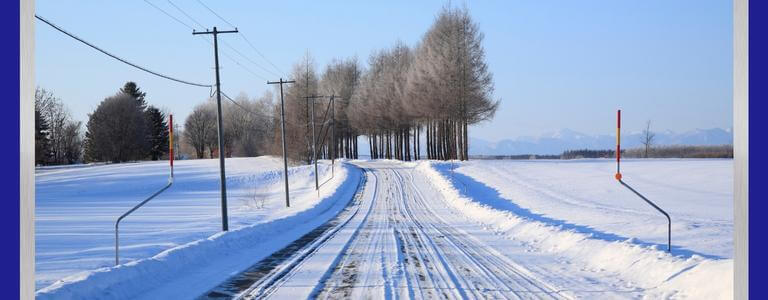
November 21, 2022 Last updated on June 16, 2023 by Bob Fisher Bob Fisher Gooseneck/Fifth Wheel Trailers
Winter means more precipitation in the form of rain or snow. Navigating slippery roads can be dangerous for drivers, especially when they are also hauling custom trailers. While it is best to delay a long trip until road conditions improve, this isn’t always possible. Here are some tips for hauling a trailer safely on wet or snow-covered roads.
If your hauling vehicle and gooseneck trailer receive regular maintenance checks, they are less likely to break down or experience issues under any conditions, including those of rain, snow, or ice. Maintenance checks should occur on a regular schedule throughout the year. Additionally, before you set out on a long trip during the winter, you should perform a spot inspection of both the hauling vehicle and the trailer to identify any issues that may arise during the trip. Be sure to perform the inspection far enough in advance of your trip so you have time to repair any issues that you discover before your departure.
Trailer sway is a dangerous phenomenon that could cause the trailer to tip over and bring the towing vehicle with it. Slippery road conditions may make trailer sway more likely, and many of the devices used to prevent it cannot be used in ice or snow. However, you install a weight distribution hitch to maintain control of your cargo and keep it distributed evenly. Improper weight distribution increases the risk of trailer sway already present because of the weather.
When road conditions are not slippery, trailer brakes may not be necessary. As the vehicle slows to a stop, the trailer slows with it. However, when the road is slippery, the trailer may fishtail or slide due to a lack of traction. Having trailer brakes helps to prevent this by distributing braking force between the trailer and the towing vehicle.
If you frequently have to drive in the snow, you probably already have snow tires installed on your vehicle when winter comes. You may not think about having snow tires installed on your trailer, but it can help to maintain traction when accelerating, turning, and stopping when hauling cargo. Anything that increases your stability on slippery roads is worth considering.
It is always a good idea to avoid using cruise control when the roads are slippery but especially when you are towing a trailer. The rig could become destabilized from an ill-timed acceleration by a cruise control system that isn’t able to take weather conditions into account.
Because of the risk of trailer sway, speed is always something that you have to take into consideration when towing a trailer. This is especially true during inclement weather. High speeds can reduce traction with the road, making it more difficult to stop suddenly if necessary. Keep in mind that posted speed limits presume that the weather conditions are favourable for driving. As a driver, you are expected to adjust your speed according to the current conditions.
If weather conditions are dark and gloomy, having your vehicle lights on helps you to see the road ahead and helps other drivers to see you when visibility is low. Choose a trailer equipped with lights and make sure they are hooked up properly for extra visibility.
We offer all trailer types from landscape trailers to larger and more complex varieties. Visit one of our dealer partners or work with us directly to customize a trailer according to your specifications.